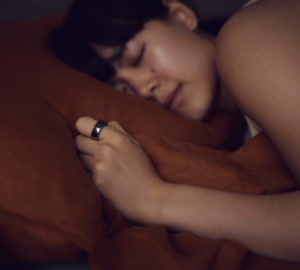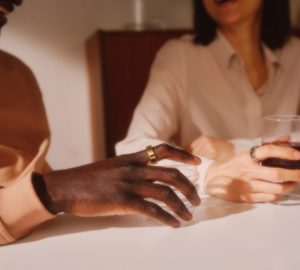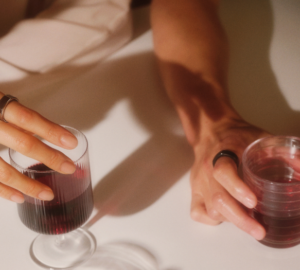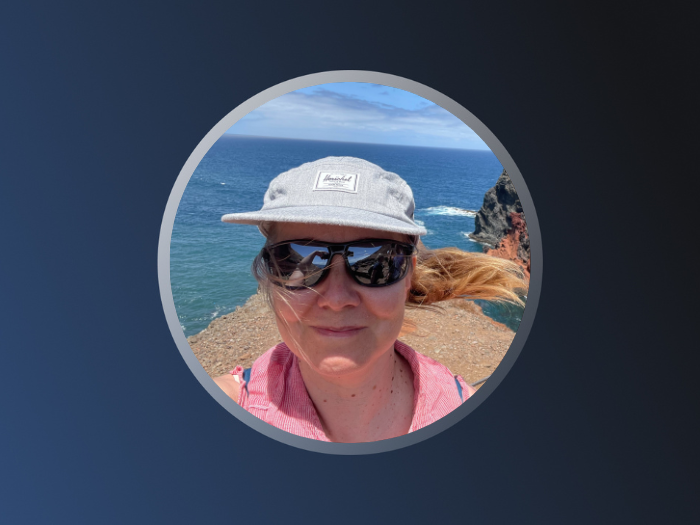Who: Jonna S., 44, Finland
Surprising Oura insight: After Jonna learned about her own chronotype and ideal Body Clock in the Oura App, she started aligning her day around her body’s intuitive schedule — with amazing results, including more energy and less morning grogginess.
Jonna, who works at Oura, has never been a “morning person.” “However, I’ve always tried to — and often have needed to — force myself to get up for early appointments, whether it’s a meeting, lecture, or even a morning workout,” she tells Oura.
But waking up wasn’t even the worst part. “I was massively ashamed of myself,” she says. “I would be tired, unorganized, and unfortunately often a bit grumpy in the mornings.” She used to be embarrassed to admit this to herself or others, due to the societal pressure to be “the early bird” and not wanting to be seen as “lazy.”
“After seeing my own chronotype data and optimal sleep timing based on my own biosignals in the Oura App, it confirmed what I had always felt: I’m at my best later during the day,” she says. Read to learn more about how Jonna leverages her new-found knowledge in her day-to-day life.
Tell us about your a-ha moment with Oura.
My experience with these features has been so eye-opening that it may very well be the biggest realization I’ve ever had about sleep! Even though I work at Oura (and I’m aware of chronotypes and their effects on people’s daily rhythms), I needed to see my own data in the app to get that knowledge really sunk in and impact my own behavior.
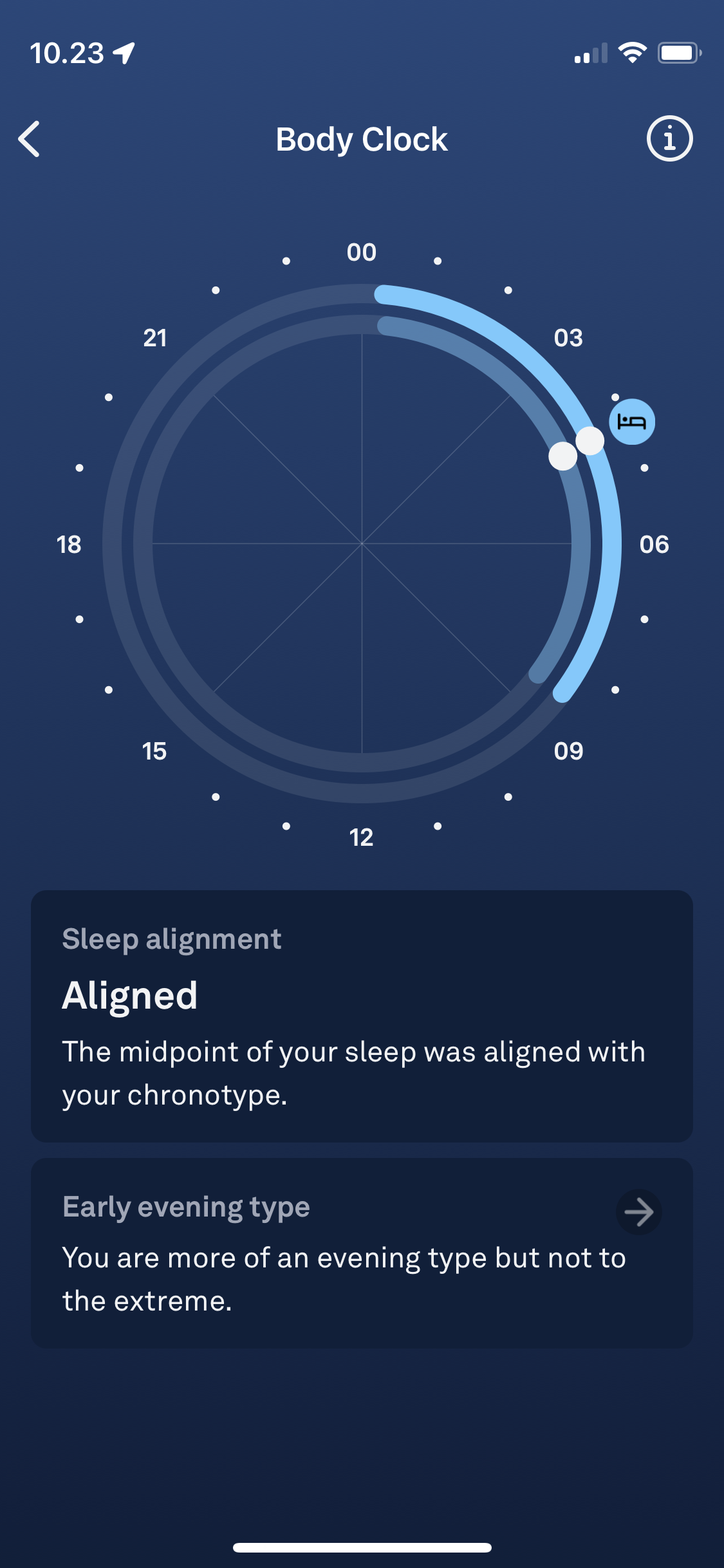
When it became available to me in the Oura App, I checked out my chronotype and discovered that I’m an early evening type.
LEARN MORE: What is Your Chronotype and Why Does It Matter?
I’ve also taken a look at my Body Clock especially on days when I followed my usual bedtime and wake-up time. It shows me how early or late the midpoint of my sleep was on those nights.
On an ideal day, I would wake up between 8:00 and 8:30am and go to bed around midnight. It was surprisingly reassuring to learn this, and consequently to allow myself to let go of the ideal of brisk and productive early mornings. Now, I instead concentrate on scheduling my day so that I make the most out of my own productive hours.
How have you changed your habits and behaviors?
I’ve had the luxury to shift my work schedule to better meet my chronotype: I currently wake up later, start my workday later, and also end my workday later. I’ve always done my workouts in the evening, so no changes were needed there. As an early evening type, these shifts in my schedule haven’t been that big anyway.
But there have been quite big effects as a result! I’ve noticed that I feel more ready to start the day, and it’s been easier to maintain energy levels throughout the day and unwind in the evening. I’m eagerly following up my longer term sleep quality trends to see if there are any changes there, but I definitely feel better!
The most significant change has been a mental one: I’m no longer ashamed of my morning sleepiness; instead, I’m quite a proud early evening type! I’ve even asked colleagues to reschedule early morning meetings if it’s ok with everyone — this would’ve been way too embarrassing previously!
What else have you learned about yourself since using Oura?
I know that it’s not always possible to live according to your chronotype, so I also focus on other sleep hygiene factors. They say that our bodies and minds appreciate routines and consistency, so I’ve tried to keep as consistent bedtime and wake-up time as possible — I follow it up with the new Sleep Regularity contributor. I think it can play a big part in my improved energy levels, too.
Now that I’ve found a rhythm I can stick with, I’ve noticed that I don’t need to sleep in during weekends, and I feel sleepy around the same time every night. There’s no Monday morning social jet lag anymore! I hope that consistency will also help me tackle any unfortunate changes in my daily schedule — say, if I ever need to attend an early morning meeting (gasp!).
I’ve also learned that sun and daylight have a lot to do with my sleep-wake rhythm, so I’ve tried to improve my routines so that I’d go out every day during daylight, and not leave all outdoor activities to evenings. It may sound funny, but if you work at home like I often do, it can be dangerously easy to stay inside for the whole day and not have proper breaks. This is my kryptonite for sure!
Another quite surprising challenge is that I like to watch TV in the evening, but I’ve noticed that any series, movies, or sports that trigger big feelings — positive or negative — tend to keep me alert. So I’m now trying to unwind (aka become bored) at least 30 minutes or so before I head to bed.
LEARN MORE: 6 Surprising Bad Sleeping Habits & How to Break Them
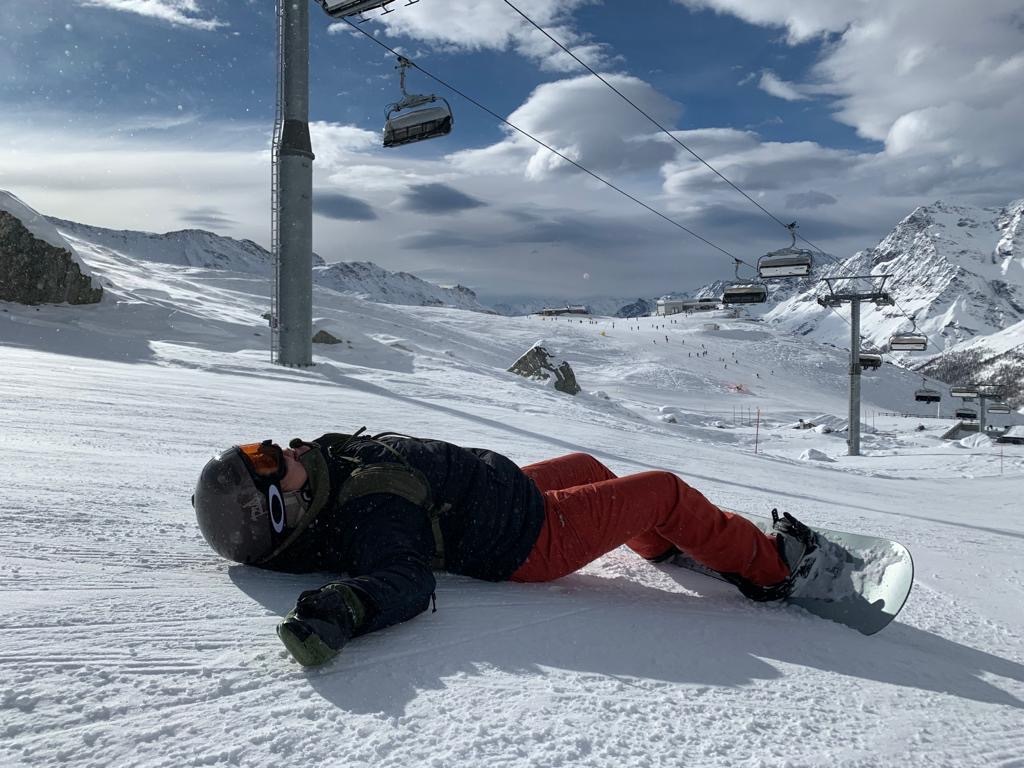
Any words of wisdom for other Oura members?
I’d say that we should be kind to ourselves (and to each other) especially when it comes to sleep, recovery, and activity. Something that works for others or is easy for them, may not work for you or be easy for you. While everyone needs sleep, there are so many nuances in our unique lives that there’s no one-size-fits-all solution.
RELATED: Learn About Oura’s Compassionate Approach to Sleep
What’s Your Oura Story?
Everyone’s story is unique, and we’d love to hear yours. Share your story here.








